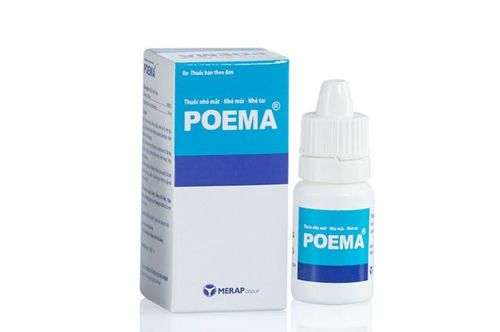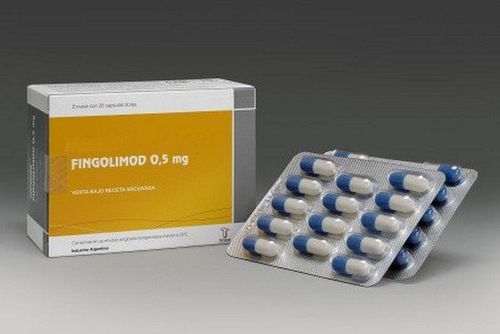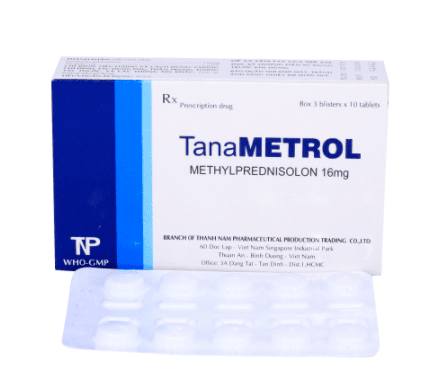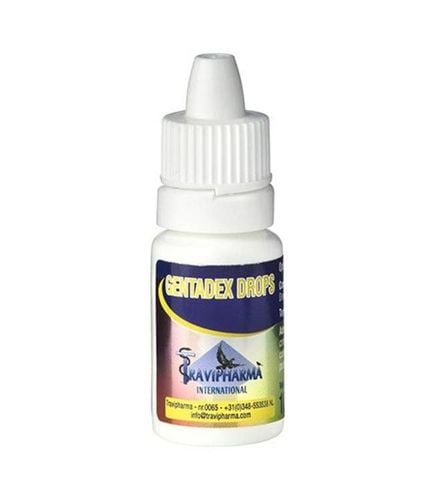This is an automatically translated article.
Patients with multiple sclerosis (MS) may be prescribed steroid therapy by their doctor during advanced exacerbations. Drugs for treating multiple sclerosis with steroids help shorten the duration of the exacerbation so that the patient quickly returns to normal. However, not all multiple sclerosis flares require steroid treatment.
1. The basics of multiple sclerosis steroids
The steroid used to treat exacerbations of multiple sclerosis are glucocorticoids, which belong to a larger group called corticosteroids. Glucocorticoids act like Cortisol, a hormone that the human body can produce on its own.
Glucocorticoids work by closing the weakened blood-brain barrier, thereby preventing inflammatory cells from migrating into the central nervous system. The effects of appropriate steroid treatment are effective in reducing inflammation and alleviating symptoms of MS.
High-dose steroids are usually given intravenously once a day for 3 to 5 days. The use of glucocorticoids needs to be done in a medical facility, but patients can still be treated on an outpatient basis if desired. It should be further noted that despite outpatient steroid treatment, any patient with any health problems is required to be hospitalized.
Slow intravenous glucocorticoids can be maintained with an oral steroid for 1 to 2 weeks. It is also necessary to gradually reduce the dose. In some cases of MS, especially, patients can be treated with oral steroids for up to 6 weeks.
Currently, there is no regimen for using steroids to treat multiple sclerosis. Therefore, the doctor will be the next to consider the severity of the patient's symptoms, from which he can prescribe the lowest possible dose that is still effective.
2. Steroids for multiple sclerosis
2.1. Methylprednisolone Methylprednisolone can be taken orally (Medrol), injected into muscles, joints, soft tissues, or the skin (Depo-Medrol, Solu-Medrol), or intravenously (Solu-Medrol). Of these, Solu-Medrol is the only one that can be given intravenously, which is quite potent, and is often prescribed for severe MS flare-ups. Depo-Medrol is slower acting and has a longer duration of action, so it may not be as effective during acute flares.
The dosage of Solu-Medrol when acting as a multiple sclerosis medication is between 500 and 1,000mg per day. In cases of low body weight, the use of low doses of methylprednisolone may be better tolerated.
Solu-Medrol needs to be administered by medical personnel and given only in Hospitals. This is one of the most commonly prescribed steroid treatments for people with MS who are hospitalized for inpatient treatment. Each infusion lasts about 1 hour, but that can vary depending on many different factors. During the infusion, MS patients may notice a metallic taste in the mouth, but only temporarily. Depending on the response, the infusion of methylprednisolone can range from 3 to 7 days, with most being a median of 5 days.
2.2. Prednisone Prednisone is an oral multiple sclerosis medication that comes in generic form and has the brand name Prednisone Intensol or Rayos.
Prednisone can be used as an alternative to intravenous steroid therapy, especially when MS exacerbations are mild to moderate. In addition, Prednisone is also used in people who need to reduce the dose of steroids after a long period of high-dose infusion.
Steroid dose reduction regimen with Prednisone is different for each patient. However, a typical adult dose reduction approach is to reduce the prednisone dose by 2.5 to 5 mg every 3 to 7 days until the daily prednisone dose is about 5-7.5 mg.
For children, dose reduction of prednisone requires approximately 10 to 20% of the current dose every 3 to 7 days until the required dose is 8-10 mg/m2 body surface.
2.3. Prednisolone Prednisolone is available in capsule or oral syrup forms. A 2021 study suggested that dose reduction by taking prednisolone for 20 days after intravenous administration of methylprednisolone had little effect on the health of patients with multiple sclerosis. However, oral prednisolone increases the risk of side effects such as increased appetite and weight gain.
If your doctor prescribes steroid treatment with Prenisolone, usually start at 200mg/day for 1 week. You will then be maintained at 80mg every other day for 1 month.
2.4. Dexamethasone Dexamethasone is one of the medications used to treat multiple sclerosis, which can be taken orally or injected. A daily dose of 30mg for 1 week has been shown to be effective in treating flares of multiple sclerosis. After that, the patient can be maintained at a dose of 4 to 12 mg every other day for 1 month. Your doctor will determine the appropriate starting dose for each individual case.
2.5. Betamethasone Betamethasone is an injectable steroid that is available as a generic or brand name Celestone Soluspan. In addition, Betamethasone is available in other forms, but those forms are rarely used as a treatment for multiple sclerosis.
Similar to Dexamethasone, the standard starting dose of Betamethasone for MS is 30mg daily for 1 week. Thereafter, maintain at the recommended dose of 12mg every other day for one month.
3. Effects of steroids on multiple sclerosis
An important issue for patients to be especially aware of is that corticosteroids do not provide long-term benefit or change the course of multiple sclerosis. However, some scientific evidence suggests that steroid treatment can help people with MS recover more quickly from flare-ups. Recovery time can fluctuate for a few days, after which MS patients feel better.
Just as multiple sclerosis manifests itself differently from person to person, so does steroid treatment. Therefore, it is difficult to predict how well the drug will help patients recover or for how long.
Several small studies, including a 2015 study in France published in The Lancet, suggest that equivalent doses of oral corticosteroids can be used in place of high-dose intravenous methylprednisolone. A 2017 review found that oral methylprednisolone was not inferior to intravenous methylprednisolone, particularly in that it was equally well tolerated and safe.
Oral steroid therapy has the advantage of being more convenient and less expensive, making it a good alternative to intravenous treatments, especially if infusion is a problem. problem with the patient. Therefore, it is important for people with MS to discuss with their doctor whether oral steroids are a good option in their case.
4. Side effects of steroid treatment
Some patients use high doses of corticosteroids which are well tolerated, but most of these active ingredients have side effects. Patients may notice some of them immediately, while others may experience side effects if the treatment is repeated repeatedly or for a long time.
During steroid treatment, the person may be in a state of temporary increased energy, which makes it difficult to sleep or even unable to sit still or rest. The condition can also cause psychological and behavioral changes, including feeling overly optimistic or impulsive when taking steroids. These side effects are generally temporary and may improve when the dose of corticosteroids is reduced.
Some other potential side effects include:
Acne ; Facial flushing; Allergy; Depression; Swollen hands and feet due to water and sodium retention; Headache; Increased appetite; Increased blood sugar; Hypertension; Insomnia; Decreased resistance; Metallic taste in the mouth; Muscle weakness; Irritation or ulceration of the stomach lining. In some cases, long-term steroid treatment can lead to other side effects such as:
Cataracts; More severe glaucoma; Diabetes; Osteoporosis ; Weight gain. According to a 2020 literature review, pregnant women in the first trimester of pregnancy should avoid using corticosteroids to treat multiple sclerosis. This is because the use of corticosteroids increases the risk of miscarriage. The researchers also recommend that corticosteroids be used only in cases of flare-ups that significantly affect a person's daily activities. Dexamethasone and Betamethasone should not be used during pregnancy at all.
Please dial HOTLINE for more information or register for an appointment HERE. Download MyVinmec app to make appointments faster and to manage your bookings easily.
Reference source: healthline













